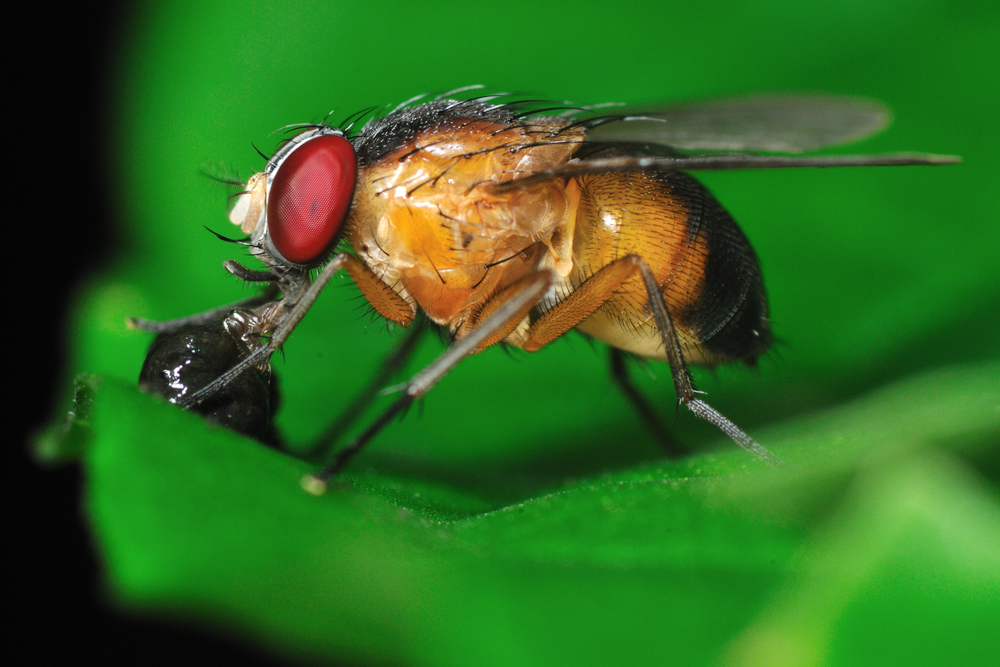Blocking 2 Enzymes Seen to Reduce Nerve Cell Loss in Fruit Fly Model of Huntington’s
Written by |

A collaboration between researchers at the University of Leicester, U.K., and the University of Maryland School of Medicine, Baltimore, may lead to a way of reversing some symptoms of neurogedenerative diseases, like Huntington’s, by blocking two specific enzymes of the kynurenine pathway.
The findings, published in the Proceedings of the National Academy of Sciences of the USA, are in the study “Tryptophan-2,3-dioxygenase (TDO) inhibition ameliorates neurodegeneration by modulation of kynurenine pathway metabolites.”
“Our research is focused on better understanding the mechanisms that contribute to onset and progression of disease symptoms in neurodegenerative disorders. These are diseases in which specific populations of nerve cells within the brain die, leading to severe problems in movement and cognitive deficits in patients,” Flaviano Giorgini, a professor in the Department of Genetics at Leicester and the study’s senior author, said in a press release.
In previous studies, the research team demonstrated that some metabolites from the kynurenine pathway were increased in diseases like Alzheimer’s, Parkinson’s, and Huntington’s, and were toxic to nerve cells. Working in a fruit fly model of Huntington’s disease, they also showed that inhibiting two enzymes from this pathway — known as TDO and KMO — decreased levels of toxic metabolites and reduced nerve cell loss.
Now, to further understand the mechanism underlying the neuroprotection conferred by inhibition of these two enzymes, the researchers demonstrated that the symptoms were ameliorated due to a “protective” metabolite from the kynurenine pathway, known as kynurenic acid, which counteracted the effects of the toxic metabolites.
“There is a fine balance between levels of ‘good’ and ‘bad’ metabolites that occurs in the kynurenine pathway. In disease, it shifts towards the ‘bad’, and by inhibiting TDO or KMO, we shift it back to ‘good’,” Professor Giorgini said. “For example, we find that if we inhibit either TDO or KMO in Huntington’s flies we reduce loss of neurons. In Alzheimer’s or Parkinson’s flies, we see extension of the shortened lifespan exhibited by these flies, and we also reverse the defects they have in movement. We have even used a drug-like chemical to inhibit TDO and found that this also alleviates ‘symptoms’.”
Researchers next plan to test the findings in mammals, with the goal of creating one or more drugs that might eventually be evaluated in clinical trials.
“There is considerable interest in developing drugs that ‘turn down’ these enzymes, so our hope is that our work could lead to drugs to treat these devastating disorders in the future,” said Dr. Carlo Breda, the study’s lead author. “Neurodegenerative disorders are devastating diseases with limited treatment options. The major risk factor for these diseases is aging — and as our society is becoming longer lived, we are facing dramatic increases in the number of individuals suffering from these disorders.”





